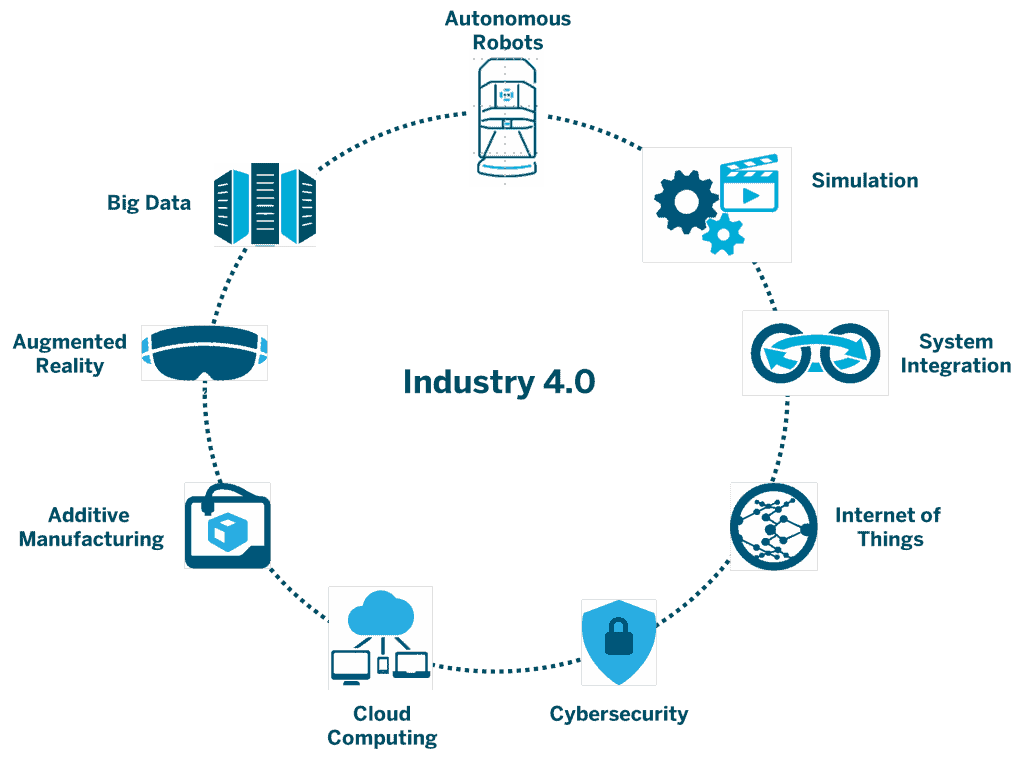By Jose Miguel Alonso-Trabanco /Geopolitical Monitor/ – The on-going proliferation of the so-called “Fourth Industrial Revolution” is captivating the minds of policymakers, businessmen, investors, soldiers, scholars, financiers and ordinary observers from all over the world. The far-reaching impacts of its unprecedented transformative potential represent the power to redefine how activities from all walks of life are done, and it also has to be noted that the speed of this wave of innovation has extremely disruptive ramifications.
Not unlike what happened in previous industrial revolutions, sectors like renewable energies, aerospace, FinTech, ICT, biotechnology, and nanotechnology are already deepening the complexity of dynamics in the political, economic, commercial, financial, environmental, social and military spheres.
Some analysts believe that the introduction of said innovations literally embodies the promise of enduring progress, development, and prosperity for all mankind. For example, desalination technologies can tackle problems related to the scarcity of water (which is chronic in regions like the Middle East), renewable energies can foster sustainable development, and biotechnology can be instrumental in reducing hunger via increasing the availability and quality of nutritional food. It’s even possible that, at some point over the next few decades, advances in biotechnology could cure untreatable diseases and perhaps even reverse the process of ageing itself.
The usefulness of these combined technologies can play a meaningful role when it comes to preventing the Malthusian catastrophes and other ominous scenarios envisaged in studies like the National Security Study Memorandum 200, commissioned in the early 70s – by none other than the legendary Henry Kissinger back when he was National Security Advisor – and prepared as a warning about the imminence of increasingly intense conflict under conditions of growing populations and an accelerating depletion of natural resources.
In other words, recent technological innovations can truly improve the living standards of millions of people. Nevertheless, there have never been benefits without costs. For instance, advanced robotics and automation are displacing countless human operators, a process that can trigger massive unemployment amongst low-qualified workers, rising crime levels, and even violent expressions of socio-political discontent.
On the other hand, it is pertinent to bear in mind that strategic, military, and geopolitical interests have always been powerful drivers of technological development. After all, as thinkers like Aristotle and Carl Schmitt have argued, man is a political animal (“zoon politikon”) and, as such, the struggle for power and domination over his peers is an inherent and permanent component of human nature. In other words, the propensity for conflict is a feature, not a bug.
Accordingly, technology has always been a source of national power and a tool to wage war in more efficient ways. For example, the birth of the Royal Society was closely related to the interest of the British Crown in developing naval technologies conceived to enhance sea power projection capabilities in military and commercial terms. Partly thanks to that, Britain transitioned from being a society of farmers and shepherds to one of industrialists, merchants, seamen, and financiers.
Of course, there are also more recent examples. ARPANET – one of the earliest precursors of the internet itself – was created during the Cold War as a network of communication that would preserve military chains of command and control in case of nuclear war. In turn, the space race was motivated by the strategic anxieties of both the United States and the Soviet Union over the prospect of a nuclear exchange and, in fact, the technological capability to manufacture spacecraft is essentially the same as the one employed to produce ICBMs. Likewise, the technologically innovative orientation of many Israeli start-up companies has been heavily influenced by the expertise and mind-set derived from the practice of military intelligence.
In this sense, the analytical contents presented bellow will discuss the main political and strategic implications of the Fourth Industrial Revolution’s most important sectors.
Renewable Energies
Since energy can be seen as the life-blood of modern economies, reliable, affordable and secure access to it is recognized as a priority in terms of national security. Moreover, the control of energy sources that are needed by others is something that confers profound geostrategic advantages in times of both war and peace. That has been fairly evident in the history of fossil fuels, especially considering that their supplies are – by definition – limited.
However, even though it will diminish the influence of prominent oil and gas exporters in terms of international politics, the arrival of more sustainable energies will not abolish the geopolitical importance of energy security. It will simply readjust the corresponding parameters of strategic competition. For example, the availability of arable land and fresh water – which are needed in order to grow the crops from which ethanol is produced – will be increasingly important.
Likewise, solar energy offers an incommensurable potential, but not every region of the planet is equally suitable for technically harnessing it in the most efficient way. Hence, the areas that receive a higher and more direct insolation would be better positioned than those that are closer to the Earth’s poles. Interestingly, the MENA (Middle East and North Africa) region is ideal for placing solar panels thanks to its geographical location, which is ironic taking into account the dramatic events it has experienced for more than a century regarding the geopolitics of oil.
Moreover, the importance of lithium as a raw material employed in the manufacture of technologies related to renewable energies will fuel a growing competition for the control of such a strategic mineral, considering its relevance for ensuring a transition toward greener sources of energy.
The article was originally published on Geopolitical Monitor. Read the full story here.






